 Petzlover
Petzlover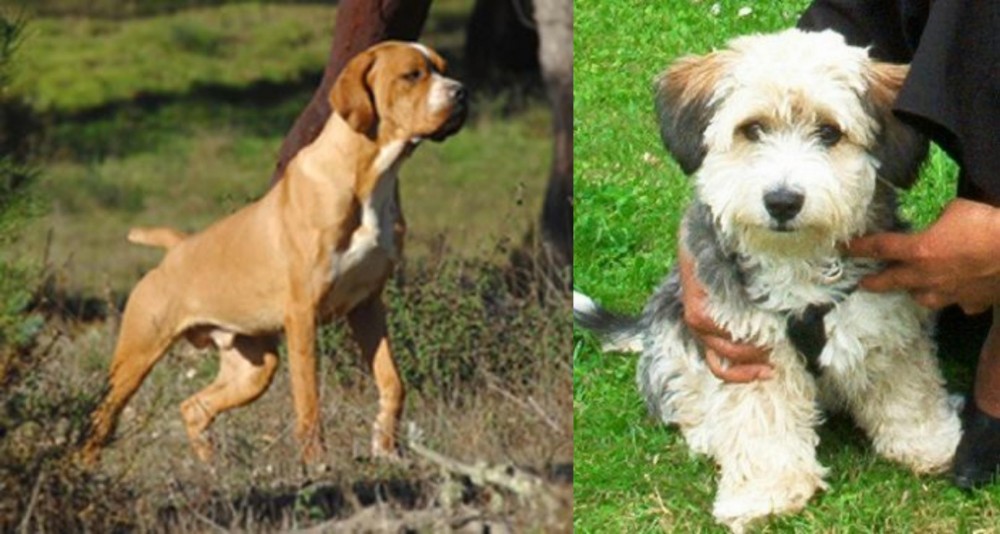 Portuguese Pointer is originated from Portugal but Yo-Chon is originated from United States. Portuguese Pointer may grow 30 cm / 12 inches higher than Yo-Chon. Portuguese Pointer may weigh 23 kg / 51 pounds more than Yo-Chon. Both Portuguese Pointer and Yo-Chon has same life span. Both Portuguese Pointer and Yo-Chon has almost same litter size. Portuguese Pointer requires Low Maintenance. But Yo-Chon requires Moderate Maintenance
Portuguese Pointer is originated from Portugal but Yo-Chon is originated from United States. Portuguese Pointer may grow 30 cm / 12 inches higher than Yo-Chon. Portuguese Pointer may weigh 23 kg / 51 pounds more than Yo-Chon. Both Portuguese Pointer and Yo-Chon has same life span. Both Portuguese Pointer and Yo-Chon has almost same litter size. Portuguese Pointer requires Low Maintenance. But Yo-Chon requires Moderate Maintenance
 The Portuguese Pointer comes from Portugal where the dog was developed as a gun dog. It is believed that the dog is descended from the Spanish Pointer and developed to point out game.
The Portuguese Pointer comes from Portugal where the dog was developed as a gun dog. It is believed that the dog is descended from the Spanish Pointer and developed to point out game.
The dog was was recognized by the United Kennel Club in 1996.
The dog was introduced to England in the 18th century and the modern type of the Portuguese Pointer became established in the early 1900’s when the breed had become endangered. A group of breeders re-established its numbers.
Today it is both working- and companion dog. The UK Kennel Club recognised it as a breed in 2014.
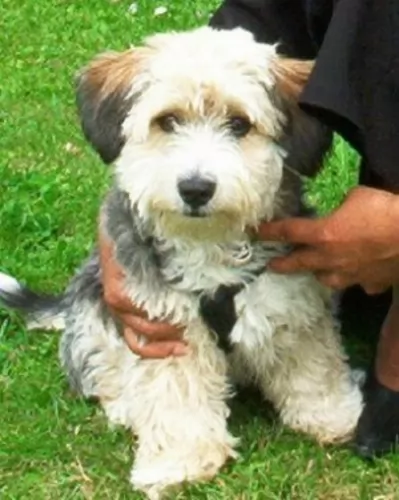 The Yorkie Bichon or Yo-Chon as he is fondly referred to as a designer crossbreed hailing from the United States.
The Yorkie Bichon or Yo-Chon as he is fondly referred to as a designer crossbreed hailing from the United States.
Information isn’t readily available on the origins of this cute little dog, but the dog is believed to be a cross between a Bichon Frise and Yorkshire Terrier.
It is thought that the dog was developed in the United States from about 1998 to 2001. As a hybrid, the Yorkie Bichon isn’t recognized by the American Kennel Club.
 Originating from Portugal, the attractive, almost Boxer-like looking dog is a medium sized purebred dog that stands at between 48 and 60cm in height and weighs roughly 16 to 27kg.
Originating from Portugal, the attractive, almost Boxer-like looking dog is a medium sized purebred dog that stands at between 48 and 60cm in height and weighs roughly 16 to 27kg.
The Portuguese Pointer has a coat that is light brown, tan or yellow. The dog has a short, easy to maintain coat. He has a fairly square face, much like the Boxer, floppy ears with a long tail. The tail is usually docked. The eyes are brown and he a bright, alert, kind expression.
The Portuguese Pointer is a dog with strong hunting instincts, but who still has time to make a splendid companion for his human family. He is gentle and loyal to his human family, being somewhat reserved with strangers. This is a good thing really as this makes him a good watchdog.
He is good with other pets in the home as well as with children. He badly wants to please his family, and because he is intelligent and a fast learner, you won’t have any trouble with training and socialization.
He is a sociable dog, loving to be close to its owner. He is active and will require quite a bit of exercise, loving to join in with games with the children. He gets on well with children in the home as well as with animals.
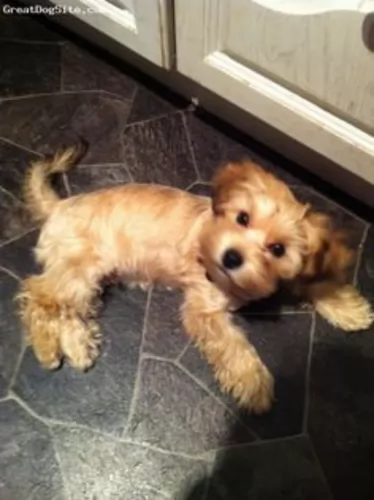 The Yo-Chon stands between 25 and 30cm and weighs in the region of 2 to 4kg. He can be like a teddy-bear this little dog and the coat can be either silky and straight or wavy. It is medium length and some people have the coat professionally trimmed.
The Yo-Chon stands between 25 and 30cm and weighs in the region of 2 to 4kg. He can be like a teddy-bear this little dog and the coat can be either silky and straight or wavy. It is medium length and some people have the coat professionally trimmed.
The low shedding coat comes in a variety of colors – cream, grey, tan, white, black or bi-colored.
Your Yorkie Bichon will no doubt have some habits that come from both parent breeds. Your dog is likely to be independent, social, friendly, social and loving, wanting to spend lots of time with you.
They’re small but they make good watchdogs with their high-pitch bark. Your Yo-Chon is an intelligent little dog too and by having him trained and socialized he is well behaved and pleasant to have around. You can tell him to lie down, sit or stay which is useful when you have visitors.
He gets on well with children, but the puppies particularly are tiny and fragile and they can easily get hurt by untrained and undisciplined children.
 The gorgeous Portuguese Pointer makes such a loyal and loving pet. He is always looking out for his human family, making sure that they are safe and protected under his watch.
The gorgeous Portuguese Pointer makes such a loyal and loving pet. He is always looking out for his human family, making sure that they are safe and protected under his watch.
He is an excellent watch dog too, proudly running around outside and making sure that there are no intruders around. They are good with kids too if the kids are gentle and kind with animals.
He loves a good game too and is always ready to take part in any activities you’re taking part in. The Portuguese Pointer is truly an awesome pet and companion.
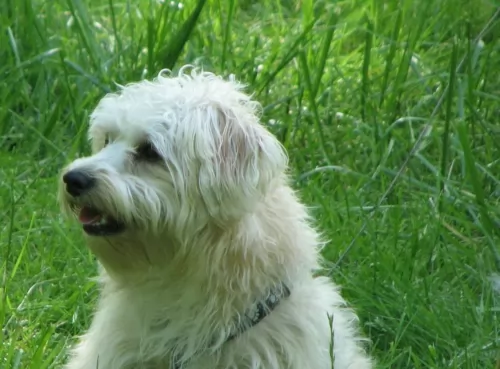 The Yo-Chon is an independent, happy dog who loves nothing more than to be surrounded by all his favorite human beings.
The Yo-Chon is an independent, happy dog who loves nothing more than to be surrounded by all his favorite human beings.
They are loving, loyal and gentle dogs and are good playmates for children who have been taught how to handle them with care and kindness.
He is smart and has an amicable nature and will take kindly to being trained and socialized.
With the Yo-Chon in your life, you can be sure you’re going to benefit from having a splendid family pet and companion.
 Your robust Portuguese Pointer isn’t known to be a dog to suffer with too many breed related health problems. With good care he can reach 14 years of age.Portuguese Pointers are a healthy breed, but some health issues can crop up -
Your robust Portuguese Pointer isn’t known to be a dog to suffer with too many breed related health problems. With good care he can reach 14 years of age.Portuguese Pointers are a healthy breed, but some health issues can crop up -
Cancer is a leading cause of death in dogs young and old. Luckily, if caught early, cancer is curable. Some of the cancers found in dogs are malignant lymphoma – a tumor of the lymph nodes.
Skin cancer is also fairly common. The warning signs of cancer in dogs can be a new lump or a wound that won’t heal. While these are classic signs, sometimes there are no signs. If your dog isn’t feeling well, it’s time to get him to the veterinarian.
The liver is one of the vital body organs but it is susceptible to a wide variety of problems. It detoxifies the blood, stores vitamins and assists with digestion among other things.
One of the most common symptoms of liver disease is jaundice. When the liver isn’t functioning properly, bilirubin builds up in the blood and leads to the yellowish appearance of the dog.
Other common symptoms of liver disease include vomiting, weight loss and diarrhea. Veterinary attention will be required.
 Both the Yorkie and Bichon Frise are dog breeds that are prone to Legg-Calvé-Perthes disease. This is when there is insufficient blood supply to the hind thigh bone, so the dog becomes lame.
Both the Yorkie and Bichon Frise are dog breeds that are prone to Legg-Calvé-Perthes disease. This is when there is insufficient blood supply to the hind thigh bone, so the dog becomes lame.
Surgical correction is necessary. Like small dogs in general, the Yochon might have dental issues. Slipped kneecaps, hypothyroidism and eye problems might affect the Yochon as well.
 The Portuguese Pointer has been a working dog and doesn’t enjoy lying around with nothing to do. Apart from a walk every day which he loves, he’ll want other activities that stimulate him mentally and physically.
The Portuguese Pointer has been a working dog and doesn’t enjoy lying around with nothing to do. Apart from a walk every day which he loves, he’ll want other activities that stimulate him mentally and physically.
His short coat means that he won’t require any special grooming. He does shed constantly, like many other dogs, and a good brush twice a week will keep his short coat vibrant and shiny.
Your canine friend will require protein in his diet as well as all the vitamins ad minerals for health. The very best commercially manufactured dog foods will be required for his health.
The dry kibble can be a wonderful convenient way to feed your pet. The best commercial foods meet the requirements for a dog’s diet. Give him some delicious home made food too. Boiled chicken, brown rice, sweet potatoes, carrots and spinach can be cooked in bulk and then chopped up and small portions mixed into the dry kibble twice a week as a treat.
It provides your pet with an alternative to the dry kibble, it is healthy, easy to digest and your pet will love it. Dogs thrive on simple consistency. Once in a while you can also give him some raw meat. Never leave him without a constant supply of fresh, cool water.
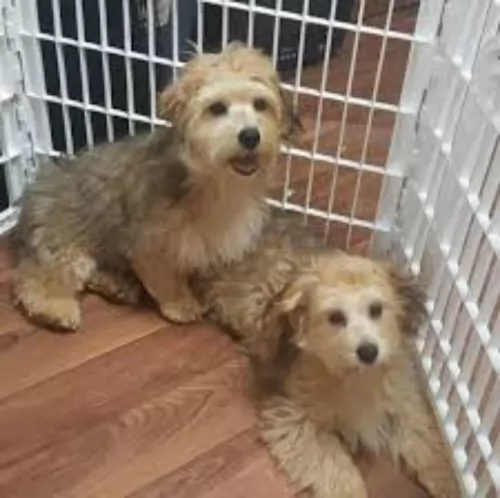 Everybody is busy and they don’t always have time to exercise their pets. As a human being, your health relies heavily on the exercise you get so you and your dog can exercise together.
Everybody is busy and they don’t always have time to exercise their pets. As a human being, your health relies heavily on the exercise you get so you and your dog can exercise together.
These days if you seriously don’t have time and you have money to spare, there are excellent doggy daycare centers where your dog can have fun playtimes with other dogs and people.
Dog exercises will change over time with age but at least try to get used to giving your pet a walk every day as this kind of exercise can extend into old age with both you and your pet.
Swimming, ball games, fetch games and walks or hikes are all great forms of exercise.
Good nutrition ensures your Yorkie Bichon has a good chance to be healthy and energetic. Some of the commercially manufactured dog foods you get are made with bad ingredients and they can make your dog sick.
The good quality ones can be nutritious for your dog and also wonderfully convenient. Always read the packaging labels so you know what your dog’s getting.
Cooked vegetables, boiled chicken and brown rice, nicely chopped up and added to the dry kibble can add variety to your pet’s diet while remaining deliciously nutritious and tasty as well.
Brush your Yo-Chon at least twice a week to keep the hair silky and shiny. Clip your dog’s nails when they get long.
Check inside his ears for signs of redness and the possibility of an infection. Try and look inside his mouth too for bad teeth as this can cause lots of health problems for your pet.
If you don’t have the time to do all these things, there are professional pet groomers who will do all these grooming chores for you.